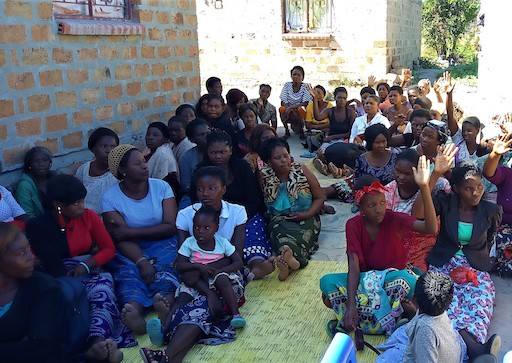
The Covid-19 pandemic caused India to go into lockdown in March 2020. Since then, the Karuna Trust and its partner in India, Jan Sahas, have worked hard to maintain the success of the Women’s Livelihood Programme. This project is funded by the Halcrow Foundation and helps manual scavenger women in Madhya Pradesh escape lives of poverty and discrimination.
An estimated 1.2 million people in India are manual scavengers, and 95 per cent of them are women. Their job is to clean dry latrines used by others in villages and semi-urban areas, lifting and disposing of heavy loads of excrement in cane baskets by hand. This not only exposes them to illness and infection, but stigmatises them as ‘untouchable’, subjecting their whole family to caste-based discrimination and humiliation.
With funds from the Halcrow Foundation, Karuna works with Jan Sahas to help women who have turned their back on manual scavenging learn new skills, helping them to find meaningful and dignified work. The Women’s Livelihood Programme provides training in garment and incense making skills, and supports women to form cooperatives. They can then sell their produce to local and national markets, earning income to provide for themselves and their families.
How Karuna is adapting its work during the coronavirus pandemic
Before the Covid-19 lockdown in India, the Women’s Livelihood Project was transforming the lives of hundreds of women. More than 500 have been recruited and trained in production and marketing skills, and – until March – were working in collective and individual centres. Overall productivity had improved, and more women were engaging with local governments, attending meetings to learn about entitlements and benefits, and then sharing this knowledge with other women.
Since the lockdown began, Jan Sahas has adapted how the programme is run. Skills training was cancelled in March and April, and production was paused in all centres. However all training sessions have been rescheduled, and women have been supported by telephone. Jan Sahas has also encouraged women to produce face masks for sale in their villages, which has helped them sustain some of their income.
About Karuna Trust
The Karuna Trust was established in 1980 and aims to end caste-based discrimination in India and Nepal. Based in the UK, it works with in-country partners to achieve the UN’s Sustainable Development Goals of eliminating inequality, ensuring access to humane and decent work, and basic education for all, with no-one left behind.
About Jan Sahas
Jan Sahas is a longstanding grassroots Karuna partner in India. For over 20 years the organisation has worked towards comprehensive community empowerment to ensure dignity and equality for the most marginalised communities, and especially women.


